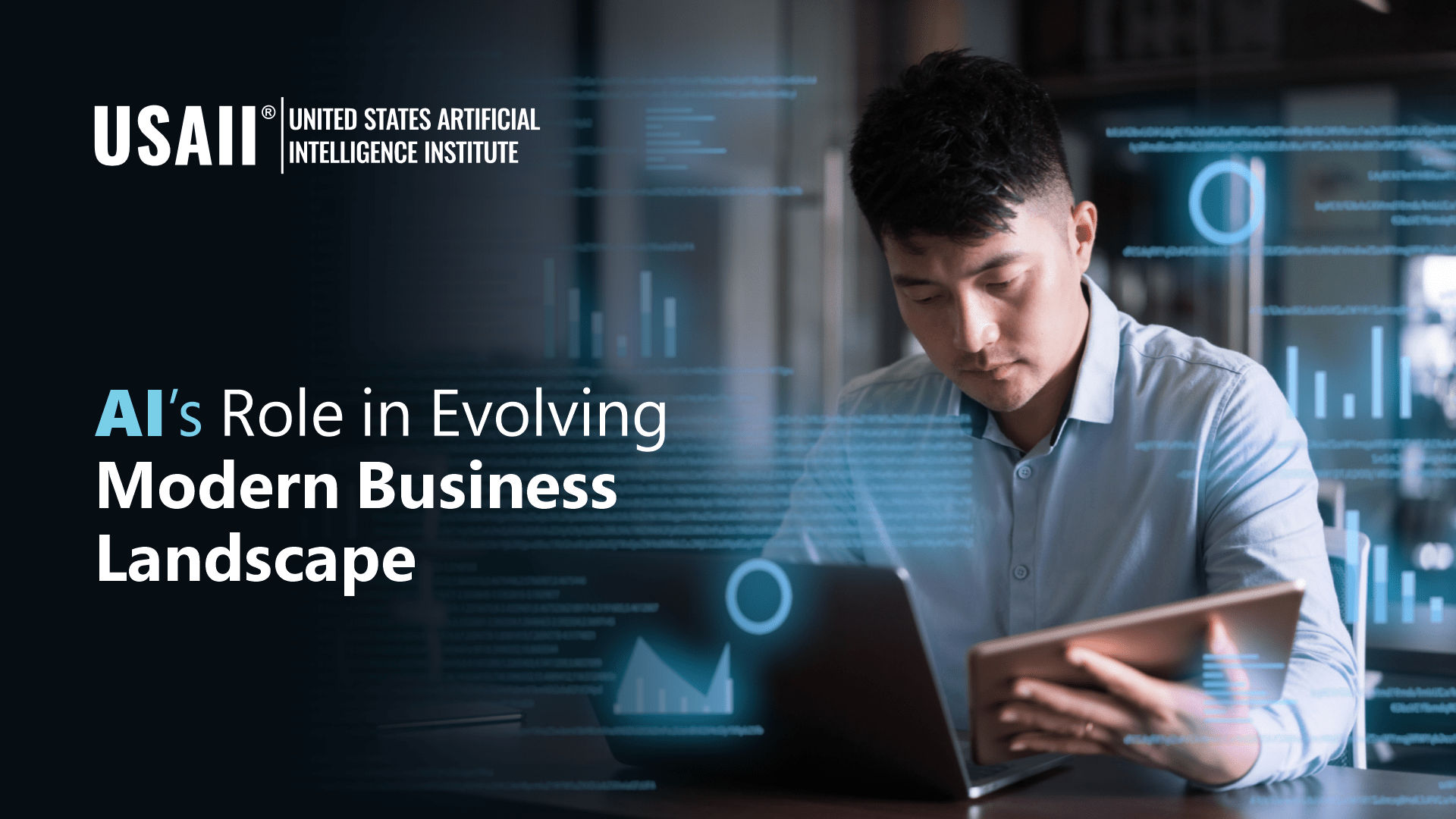
What is the difference between implementing a new ERP system and adopting artificial intelligence? At first glance, both seem like simply integrating new technologies into your organization. So why approach AI differently? The answer lies in its disruptive potential. AI is not just another tool—it is a transformative force capable of reshaping your organization and redefining the competitive landscape in ways traditional technologies cannot.
AI as a Transformational Competitive Force
Companies like Uber, Airbnb, Netflix, and Amazon have revolutionized their industries through the power of artificial intelligence. As AI becomes more accessible, these standout examples will no longer be the exception. The growing availability of data, advancements in computing power, and innovations in technologies like voice and visual recognition are unlocking a vast range of opportunities—not just for your organization, but for your competitors as well.
AI’s potential is not limited to digital-first companies; even industries deeply rooted in manual labor are undergoing radical transformations. A prime example of this is John Deere’s use of AI in agriculture. The company has integrated advanced AI-powered technologies into its farming equipment, such as autonomous tractors and precision agriculture tools. These innovations allow farmers to analyze soil conditions, optimize planting patterns, and monitor crop health with unprecedented accuracy. John Deere’s AI-driven machines can also identify and spray individual weeds, drastically reducing the need for chemical herbicides. This level of precision not only enhances productivity and reduces costs but also supports more sustainable farming practices. As AI continues to evolve, companies like John Deere are proving that even long-established industries can be revolutionized by data-driven, intelligent solutions.
Integrating Artificial Intelligence into Strategic Planning
Given AI’s transformative potential, it is no longer just a consideration for tech giants—it’s a strategic imperative for businesses of all sizes. To stay ahead, AI needs to be a core part of your strategy, not an afterthought. This technology can enhance everything from your customer experience to your operational efficiency, but only if you approach it with intention and foresight.
Here are some critical questions to guide your strategic discussions:
The First Step - Establishing a Common Language
If you do not have clear answers to the previous questions, you are not alone. Many organizations struggle to navigate the complex landscape of artificial intelligence, which spans multiple fields and technologies. That is why the first critical step is to establish a shared understanding of AI within your executive team.
As McKinsey highlights:
"When assessing stalling AI transformations, we find that most of the problems hindering success can be attributed to insufficient planning and alignment. A lack of understanding within leadership during the strategic planning phase will inevitably lead to confused execution of the business transformation."
By ensuring that your leadership is aligned on what AI truly is—and what it can do—you set a strong foundation for successful AI adoption and integration into your business strategy.
Ethical Legal Considerations in AI- A Major Element
Beyond strategic concerns, artificial intelligence also introduces significant ethical, legal, and environmental risks. As organizations adopt AI, it’s critical to understand the challenges faced by companies already leveraging this technology, as well as the relevant laws in the regions where you operate. Ensuring compliance and addressing these issues early on will help mitigate potential pitfalls and maintain trust with your stakeholders.
A Conversational Robot is Not a Distinct Entity
Take chatbots, for instance. Many companies may not realize they are legally responsible for the information provided by their AI systems, just as they would be for content shared directly on their website. This was demonstrated in the case of Air Canada, which was held accountable for a mistake made by its chatbot.
The ruling established that "although a chatbot has an interactive component, it is just a part of Air Canada's website. It should be obvious to Air Canada that it is responsible for all information on its website. Whether this information comes from a static page or a chatbot makes no difference," as noted by Christopher Rivers of the Civil Resolution Tribunal.
This example underscores the importance of understanding AI's legal implications and treating it as an integral part of your business operations.
Key Considerations- Responsible AI in Strategic Planning
As you navigate the complexities of AI adoption, it's crucial to go beyond compliance with current regulations. Now is the time to define what responsible AI means for your organization. Developing a framework for ethical AI use not only mitigates risks but also strengthens your brand’s integrity and trustworthiness. Numerous resources and organizations, such as IBM and the Montreal Declaration for Responsible AI, offer valuable guidance on implementing ethical AI practices.
To help you get started, here are some key questions to guide your strategic thinking:
By addressing these considerations, you can ensure that your AI strategy aligns with both your business goals and your values, fostering a more responsible and sustainable future.
Conclusion
Integrating artificial intelligence into your business is not just a technological decision—it is a strategic one that will reshape the competitive landscape in profound ways. As AI continues to evolve, understanding its potential, risks, and implications is critical for any organization aiming to stay ahead. The questions and considerations raised throughout this article should serve as a starting point for deeper reflection on how AI can enhance your business strategy.
Whether or not you choose to fully embrace AI today, it is essential to recognize the impact this technology will have on your industry and prepare accordingly. From operational efficiency to ethical concerns, AI offers immense opportunities but also demands careful planning and alignment across your leadership team.
By thoughtfully addressing AI's strategic, ethical, and legal dimensions, your organization can move forward with confidence—ready to leverage AI’s transformative power responsibly. To learn more about how to integrate AI into your business and build a future-proof strategy, we invite you to explore our other resources and articles.
Follow us: